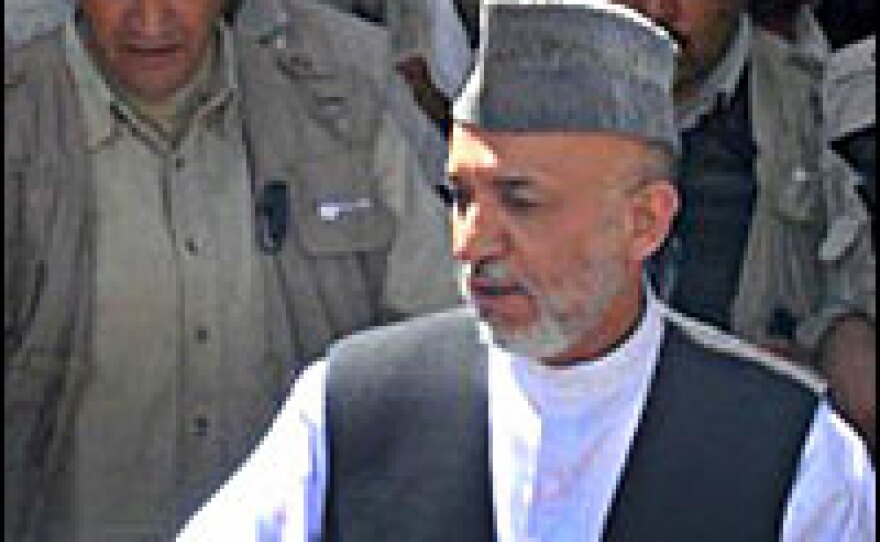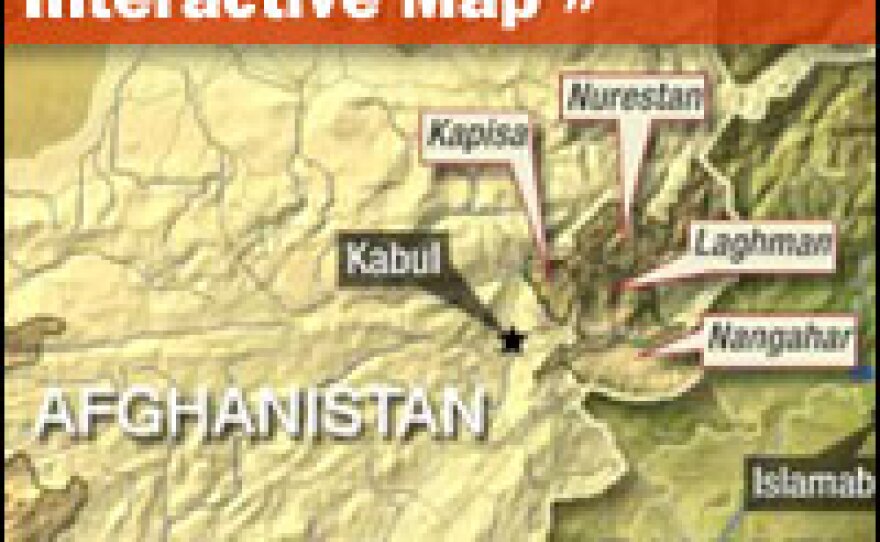
Last month, a joint U.S.-Afghan military force stormed a small village in western Afghanistan. The troops were searching for a Taliban commander and his fighters.
Survivors of the raid, the Afghan government and the U.N. say the ground attack and the subsequent airstrike left about 90 people dead — most of them children.
The U.S. military, however, has claimed that no more than seven civilians were killed and that the rest of the dead — up to 35 people — were Taliban fighters.
On Thursday, Afghan President Hamid Karzai met with people from Azizabad, the village that was attacked in the Aug. 22 raid. The meeting in Shindand district of Herat province was a rare move by the president, NPR's Soraya Sarhaddi Nelson tells host Melissa Block.
Karzai told village elders and local officials that he was frustrated by the situation and that he felt he needed to ask God to stop civilian casualties because as president, he has been unable to do so, Nelson says.
Karzai also promised that he would pursue judicial action against soldiers who were involved in the raid, and said he wants them go to trial, Nelson says.
Factors like remoteness and burial traditions may account for the widely differing death tolls that were published by the U.S. and Afghanistan; investigators and Western reporters have a difficult time getting to remote and dangerous locations.
The Islamic tradition of burying bodies very shortly after death and a prohibition on exhumation also complicates counts. This leaves no time for investigators to come in and conduct a more forensic probe, Nelson says.
While the American military says it counted the bodies, many local Afghan officials say many of the dead were buried under the rubble of buildings taken out by the airstrike, and that many of these dead, children especially, were not pulled out for days.
Though claims of civilian casualties often serve to inflame public anger, and retrieve a cash benefit, Nelson says that the village that was attacked was not in a Taliban stronghold, so the pressure to inflate casualty numbers might not be as prevalent.
Though a joint inquiry is possible, it is unlikely because officials do not want to prolong the agony of the situation, and because all sides refuse to budge from where they stand on the issue, Nelson says.
The Afghan government does, however, want to renegotiate the status of forces agreement with the Western military that would curtail what they would be able to do in Afghanistan, Nelson says.
Copyright 2022 NPR. To see more, visit https://www.npr.org. 9(MDAzMjM2NDYzMDEyMzc1Njk5NjAxNzY3OQ001))






